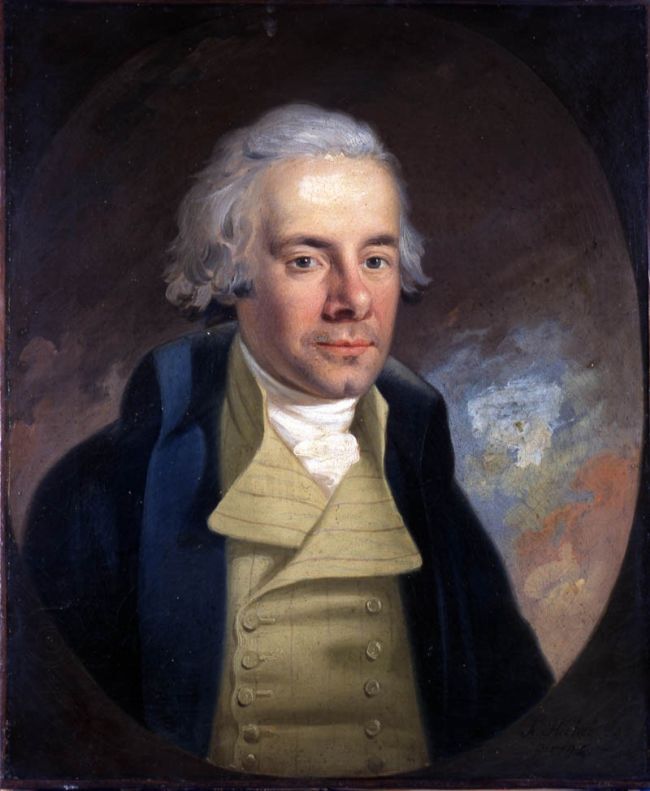
- Posted on:July 14, 2024
- Categories: Inspiring Story
- Author: Darren Sapp
[Every good thing comes from God and He graciously calls each of us to join Him in the good He is doing.]
Twenty-one, wealthy, and charming, Wilberforce entered Parliament in 1780, but later said, “The first years in Parliament I did nothing—nothing to any purpose. My own distinction was my darling object.”[1]
“God is faithful, through whom you were called into fellowship with His Son, Jesus Christ our Lord” (I Corinthians 1:9, NASB).
The realization that he’d wasted seven years pained his conscience and he suffered deeply, until one Easter morning, the light broke on his soul and he became a follower of Jesus Christ. His close times with Jesus permeated his life and he soon saw that his idleness in the Parliament had to go.
“Every good gift and every perfect gift is from above, coming down from the Father of lights, with whom there is no variation or shadow due to change” (James 1:17, ESV).
“My walk is a public one,” he wrote in his diary. “My business is in the world, and I must mix in the assemblies of men or quit the post which Providence seems to have assigned me.”[2]
Two influential men who detested slavery—Thomas Clarkson and John Wesley—separately approached Wilberforce and encouraged him to use his position to put an end to the evil human trafficking. From John Newton, a former slave trader and author of the famous hymn, “Amazing Grace,” Wilberforce learned the horrors of the capturing and transporting of Africans for slavery.[3]
He and Clarkson worked together against slavery, but in 1787, when the British Parliament voted down the anti-slave-trade bill, Wilberforce experienced a crushing defeat. But undaunted, that day the young politician recorded his resolve in his diary: he would see an end to the slave trade.
Although small in stature, he spoke boldly when given the opportunity.
Several atrocities awakened the whole of England to the horrors of the slave trade, such as the Zong case, where the crew forced several captured Africans, considered cargo, over the side so the owners could claim the insurance payments. Slavery remained legal in England, and the Trans-Atlantic slave trade made for good business for British shippers. These events consumed Wilberforce.
He had to do something. Scripture commands that we “learn to do good; seek justice, correct oppression; bring justice to the fatherless, plead the widow’s cause” (Isaiah 1:17, ESV). Wilberforce engaged in conversations with numerous like-minded people, and they determined nothing less than the full abolition of the slave trade would suffice.
They demonstrated that this evil harmed all parties. Most brutal for Africans, it made for corrupt business leaders and appalling working conditions for the sailors. If the people were not swayed by the plight of the Africans, perhaps they’d be troubled by the dangers and moral degradation faced by their fellow Englishmen.
The pro-slavery campaigners sought to derail Wilberforce by reporting to the public how the Africans were far better off in captivity than in their natural state in Africa—a lie of tremendous proportions. Plenty of obstacles stood in his way, but he remained defiant.
Although the first bill had been defeated by a two-to-one margin, the new version carried more promise. Wilberforce and his partners successfully persuaded their counterparts. The Slave Trade Act of 1807 passed with overwhelming numbers as an emotional Wilberforce looked on.
It’s clear that God is the one who calls and equips us. Is God calling you to do something about it? Write an email? Make a visit? Why not ask Him today?
Wilberforce had the courage to fight. God gave him grace. Amazing grace. He will do the same for you.
[1] Mark Galli, “William Wilberforce,” Christian History | Learn the History of Christianity & the Church, accessed October 06, 2018, https://www.christianitytoday.com/history/people/activists/william-wilberforce.html.
[2] Ibid.
[3] Eric Metaxas, Amazing Grace: William Wilberforce and the Heroic Campaign to End Slavery (New York, NY: HarperOne, 2008), 10.